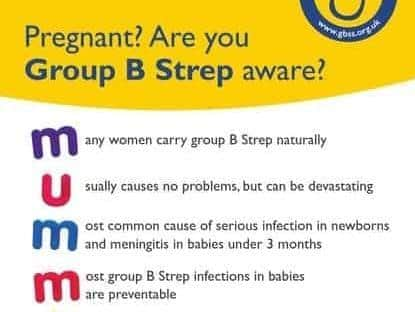Tragic death of baby in Milton Keynes from Strep B prompts official call for all pregnant women to be tested
and live on Freeview channel 276
The baby boy was found unresponsive in his cot at his Milton Keynes home last December. He was taken to Milton Keynes Hospital but sadly attempts at resuscitation failed.
A post mortem identified the cause of death as a late onset Group B streptoccocal infection, said senior MK coroner Tom Osborne, who conducted the inquest.
Advertisement
Hide AdAdvertisement
Hide AdStrep B is a type of bacteria called streptococcal bacteria and is very common, with up to two in five people have it living in their body.


It's normally harmless and most people will not realise they have it. But, if the infection is transmitted to a baby during birth, it can have disastrous consequences and cause complications such as pneumonia, meningitis or sepsis. All of these are preventable though if the mum and/or baby is treated.
Many other countries routinely swab test women for the bacteria during pregnancy. If found, special measures are put in place during labour with antibiotics given to the mum and special observations carried out on the baby,
But the NHS in England has a policy of not testing. Their website states: "Routine testing is not currently recommended and tests are rarely done on the NHS, but you can pay for one privately."
Advertisement
Hide AdAdvertisement
Hide AdThe baby's mum had not been tested for Strep B, said Mr Osborne, who has now used his powers to serve a special 'Report to Prevent Future Deaths' on MK hospital chief executive Joe Harrision,
His report states: "It appears that GBS was never discussed with Miss X at any time during her pregnancy. She was certainly not made aware of the dangers of this infection to her new baby. It would seem that had Miss X been screened for GBS infection and the screen had proved positive she would have been offered antibiotics during labour and the death of the baby may have been avoided."
It continues: "At least 60 countries have a national policy for a form of microbiological screening and antibiotics use during pregnancy to prevent newborn GBS disease. I consider that for the safety of babies born in Milton Keynes, the trust should consider the introduction of a screening program for all pregnant mothers delivering in Milton Keynes. If the screening process proves positive, then antibiotic cover should be offered. "
"This is an area where Milton Keynes could lead the rest of the country and save the lives of many babies. In my opinion action should be taken to prevent future deaths and I believe you (and/or your organisation) have the power to take such action. "
Advertisement
Hide AdAdvertisement
Hide AdMK hospital must respond to the report by December 22 and the response must set out a timetable of action they plan to take.
Copies of Mr Osborne's report have also been sent to The Care Quality Commission, The Chairman of the House of Commons Health Select Committee, both Milton Keynes MPs and the national Group B Strep Support Group.
More information about the Strep B support group is here .
MK hospital Consultant Paediatrician Dr James Bursell told the Citizen today: “I would like to say how sorry I am to the family on the death of their son and the grief and loss they are enduring."
He added: "The baby died from late-onset Group B strep when he was 55 days old. This infection can also cause serious, sometimes fatal illness in babies very soon after birth (known as early onset Group B strep) – the risk of which can be significantly reduced with antibiotic treatment during birth (for the mother) and immediately after birth (for the baby). Women are not routinely screened during pregnancy for Group B strep in England.
Advertisement
Hide AdAdvertisement
Hide Ad“Following an inquest into his death, we have responded to the Coroner after he recommended a screening programme for Group B strep in pregnancy be introduced at Milton Keynes University Hospital.
“All NHS screening programmes are commissioned and operated nationally, and we would certainly participate in any clinically indicated national screening programme for Group B strep in pregnancy. We have written to the Coroner to explain that, and to outline other steps that we have taken around supporting families to recognise illness in babies during their first days and weeks of life, and how we may get involved with any early trials of screening programmes for Group B strep.”
.